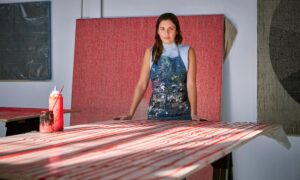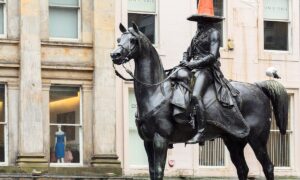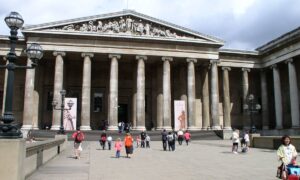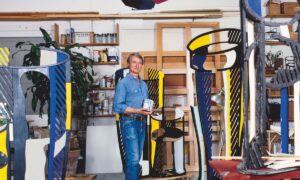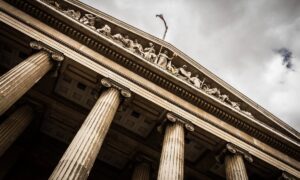[ad_1]
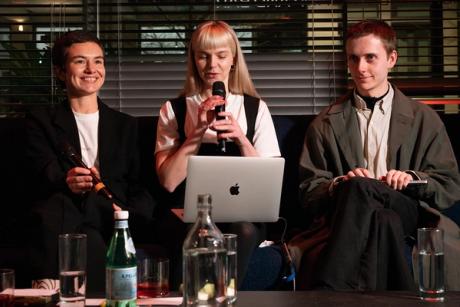
The arts technologies team at Serpentine Galleries in London has invited artists and arts institutions, lawyers, publishers and technologists to join them in developing new shared systems for cultural bodies to manage and control their data using artificial intelligence (AI). Their call to action comes in a year when the use of AI by large corporations to parse and profit from data sets—as well as by governments, companies, professionals and creatives in daily life—is one of the burning issues facing society.The team’s invitation was made at the launch in London of Future Art Ecosystems 4: Art x Public AI (Fae 4), their fourth annual report designed to encourage new thinking and collaboration around the interaction between art and technology. The previous reports have been on Art x Advanced Technologies (2020), Art x the Metaverse (2021), Art x Decentralised Tech (2022). The Fae reports are designed to “convene, share and build knowledge about technology and society”, Kay Watson, head of arts technologies at Serpentine, said at the report’s launch on 19 March.The report, Watson said, “zooms in on the emerging AI technologies and how they impact on creative economy and society”. It also offers “insights and strategies for cultural sector to understand the effect of AI on everyday lives”, Serpentine’s director Hans Ulrich Obrist said.“AI technologies promise to affect nearly every aspect of our lives,” the report says. “Knowing that this transformation will play out on a societal scale” requires the development of mechanisms that allow multiple voices to “steer AI not simply as a new category of tech products, but as a public resource and infrastructure”. This development, the report says, will create an understanding of what it terms “public AI”, and how institutions, artists and professionals can engage with it for the public good.Kay Watson (left, head of Arts Technologies at Serpentine), Hans Ulrich Obrist (director of Serpentine), Victoria Ivanova, Eva Jaeger and Alasdair Milne at the report’s launch Photo: Sam NightingaleSerpentine has been focused on AI and how it relates to art and artists since 2014. It is an interest that was formalised in 2019 with the creation of Serpentine’s Creative AI Lab, a collaboration with King’s College London’s digital humanities department and the Legal Lab—a research programme at Serpentine.This year AI has a “key dimension” in the exhibition programme at Serpentine, Obrist said at the report’s launch. Refik Anadol’s exhibition at Serpentine North (until 7 April) features the UK premiere of Living Archive: Nature, a commission presented at the World Economic Forum in Davos in January. Anadol describes it as “a ground-breaking initiative that we call the Large Nature Model… the world’s first open-source, generative AI multimodal focused on nature, trained on an extensive and ethically sourced dataset of the natural world.” Meanwhile, the autumn and winter the Berlin-based artists and technologists Holly Herndon and Mat Dryhurst—long-standing collaborators with the Serpentine team—will present an exhibition at Serpentine generated from the building and the use of a vocal data set gathered through working with community choirs in Britain.Data trusts and data trusteesThe collaboration with Herndon and Dryhurst will test one of the report’s recommendations: that cultural organisations should experiment with creating what they call “data trusts”—a means of looking after data, in this case the recordings shared by community choirs—and establishing the role of a “data trustee”. Serpentine is for the collaboration with Herndon and Dryhurst.The report’s authors hope to capture public engagement with AI by using something readily accessible to the public—for example recordings of community choirs—to convey how simple a data trust can be.No organisation can do it aloneAnother recommendation is that institutions become aware that they cannot get to fully understanding their relationship with AI alone. “We need common benchmarks around data stewardship within an emerging data market, Eva Jaeger, arts technologies curator and creative AI lead at Serpentine, said at the report’s launch. This requires multiple organisations “coming together and understanding what policies are to be”, she said. It also requires institutions to develop “advance production capability”, which depends on their having “tech literacy that allows organisations to make decisions for themselves”.This tech literacy is “not yet integrated into culture sector”, Jaeger added, and one of the backbones of Fae4 is its guide of the multi-layered tech stack that makes up AI. This stack, broken into software and hardware sections, the report says, shows how “the interdependence between industry, states, non-governmental organisations, academia and the many publics that are implicated in the creation and adoption of AI can be understood”. This, it says, highlights the fact “that ‘public AI’ is not just a speculative category, but a reality that requires ongoing development and support”.Above all, Jaeger said, “we want people to read the report”.Refik Anadol: Echoes Of The Earth: Living Archive Serpentine North Gallery, London (until 7 April)Future Art Ecosystems 4: Art x Public AI
[ad_2]

